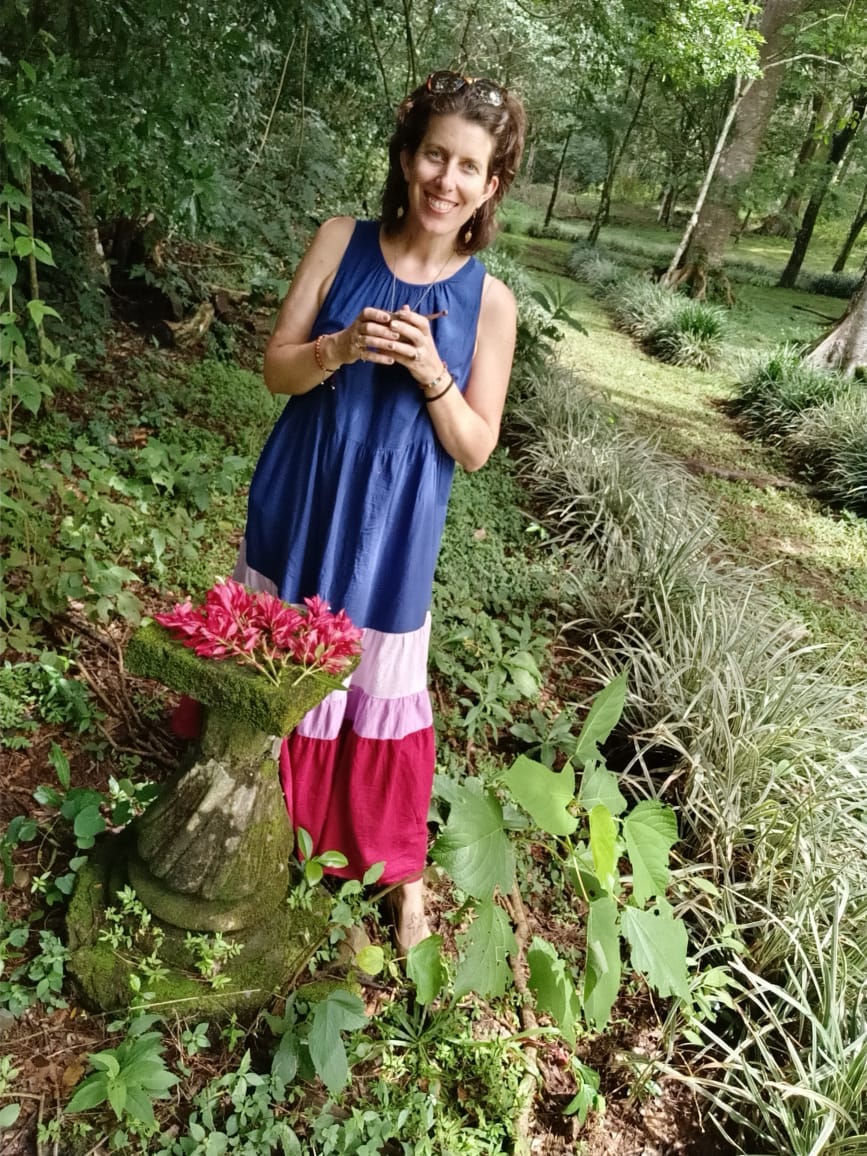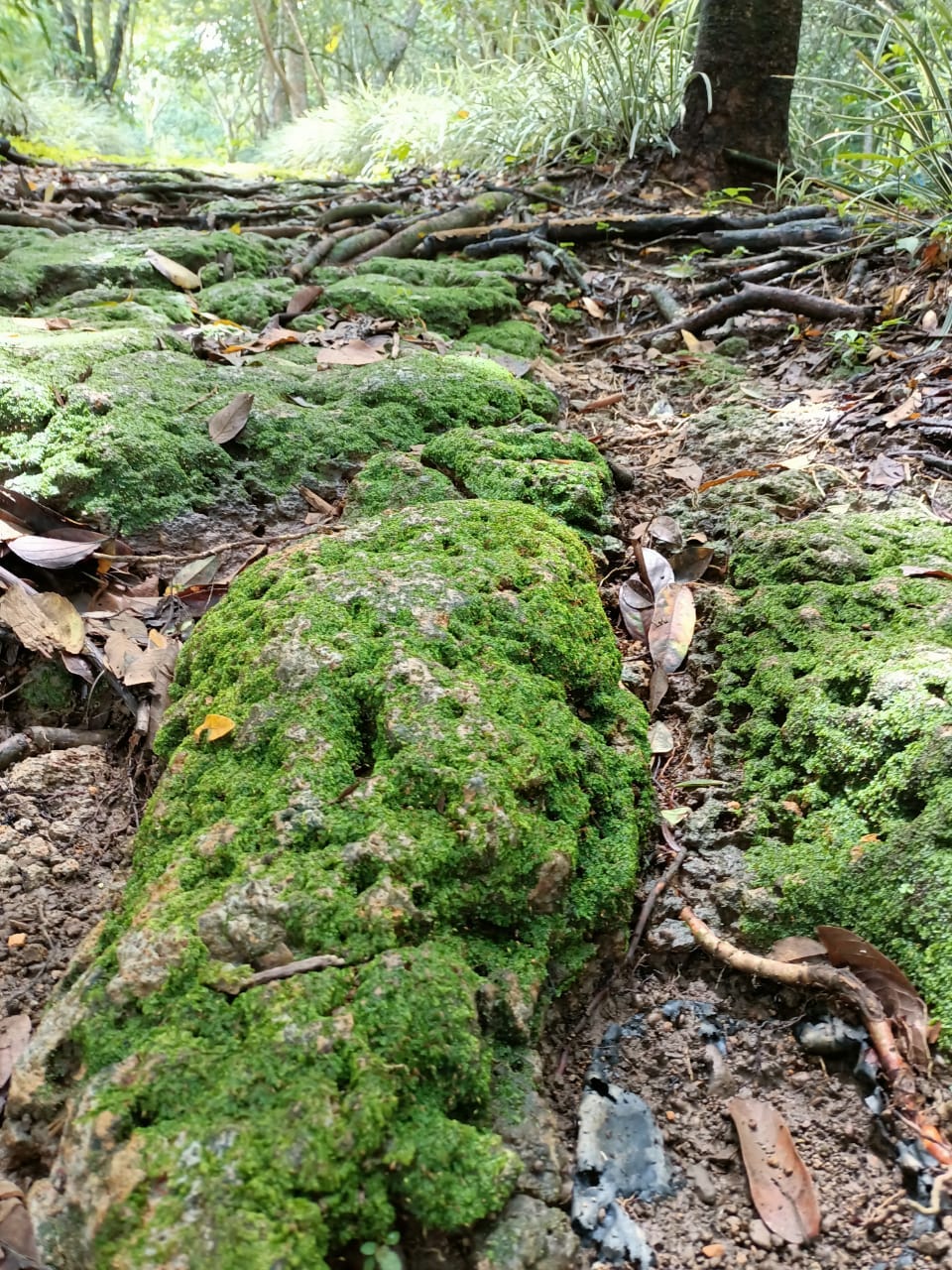Invitations
On pedagogies of slowing down, co-creating, and embracing mystery
Dear ones,
This week, my friends at Ecoversities Alliance shared this statement in solidarity with Gaza, entitled Let us not look away: how can we learn to unlearn war? I recommend reading it in its entirety, reading it as a prayer, a cry, a call to action.
For more on ideas for taking action in solidarity with Gaza, I recommend these lists from Gaza is Palestine and Jewish Voice for Peace, and these posts by Dr. Amber McZeal and Tending the Roots Community. If you are from the US, I urge you to contact President Biden and your Congressional representatives to support the global call for a ceasefire now.
How can we learn to unlearn war? I am carrying this question with me as I am preparing for our Peace Education: Theory and Practice class on Monday. I have been carrying this question with me most of my life. It is the question at the heart of peace education.
Lately, I have been thinking a lot about the unlearning part. In peace education, we talk a lot about what we need to learn, to understand, to do (knowledge, skills, values, attitudes), the content we need to take in, the skills we need to develop, the values we need to hold. And all of this is important, of course. But there is also a lot we need to unlearn, habits of being that are small ways we continue the small wars and domination within ourselves and around us. The ways of being we have learned from the culture of war, of domination, violence, and supremacy, that we need to unlearn and learn beyond.
I will write more about unlearning another day. Today I wanted to write to you about invitations I am offering to my students on Monday (although many of my invitations below are also invitations to unlearn together). This course is the heart of my work, so over these weeks I will be trying to share with you some of the things we do together.
As I prepare for our class, I sit in the tension and complexity of the immense privilege to be in a peaceful place where I can think about and talk about peace, alongside the immense need in the world for it1 - for peace itself, and for learning and unlearning towards it. For learning to unlearn war.
In our first session, we will talk about some of the pedagogical principles that guide my work, which are also invitations as ways for us to be together. We will also create community guidelines together, but these are different (I am not asking anyone to agree to them - that is why they are invitations). I wanted to share them with you today, as a pedagogical tool, and as invitations to you as well, if you want to join me (as they are invitations, you can take them or leave them). To me, they are very small steps towards (un)learning towards other ways of being, but I believe that the small is important, and it is in the little gestures and acts that we make a more loving and livable world.

Some of my* pedagogical principles and invitations
*They’re not “mine.” I have learned them through infinite teachers and experiences which inform my approach and my way of being in the world. Many of these teachers you will read in this course, but beyond them there are many more (we will honor our teachers in an activity we will do together tomorrow, honoring our lineages and those who brought us here2). Many of these ideas I am sharing here, I have learned from Indigenous, Black, and feminist thinkers, teachers, and writers from the Global South. I honor these teachers, and any misunderstanding of their teachings is my own.
I invite YOU, and you are welcome. You are welcome to bring as much of yourself as you are willing to share. You are welcome just as you are. Peace education should always be contextual, and you are the experts of your contexts, from your unique perspectives. I invite all of your wisdom, life experience, questions, and complexities into this space. I believe in hospitality as a central pedagogical principle, in creating a welcoming and warm environment, which includes our learning altar and small efforts to beautify our space while we are in it.
I invite us into collaboration and co-creation of this space and our time together. We make this course together and we are all responsible for what it becomes (though we have different responsibilities). Practicing collaboration and collectivity is a way of unlearning (hyper-toxic) individualism that many of us learn through our cultures and formal schooling. We make this space together, and the possibilities are nearly endless3 for what we can create together. This includes collaboration and co-creation with the land we are on and the more-than-human world.
I invite us to slow down together. Slowing down is a radical practice of unlearning
capitalist productivity logic and habit energy. It is not easy in the three week intensive time frame of our course (side note: what is the schedule teaching us?), but we can try. As my teacher Bayo Akomolafe says, “The times are urgent, let us slow down,” which is not just about velocity, but rather our quality of being, how we listen, where we put our attention, whose voices we listen to.
I invite us to sit with the mess and stay with the trouble4 of building a more loving, peaceful, just world, together. This work is messy! We enter this space with the complexities of our identities and experiences. I invite us to dwell in complexity and uncertainty, to not be so quick to judge each other, to seek easy answers, and to learn to sit with discomfort.
I invite us to notice our interbeing and entanglement, not just with the things we want to be in relationship with, but also with the unpleasant and painful things, the systems we abhor yet are still touched by and are complicit in, albeit differently depending on our physical and social locations, identities, and positionalities. I invite us to notice and name violence and domination as they show up outside and inside the classroom space.
I invite us to engage in intellectual rigor and relational rigor5. Everything is relationship, and everything about learning is relationship (our relationships to each other, to the topics and ideas, etc.). I believe it is possible to be intellectually rigorous and rigorous in our care6 for ourselves in each other, and that each are important and valuable to the learning process. Academia tends to value intellectual rigor over everything else. I believe we can redefine rigor to include how we are with each other and what we practice together.
I invite us to be stretched and challenged, but not stressed unnecessarily. This is inspired by the zones of learning model:
In a world full of panic (and a false sense of urgency due to capitalist productivity grind culture and habit energy), it is a radical act to stay grounded. Which is not to say there is not reason to panic sometimes, but we can learn to befriend our nervous systems, and when we enter panic mode, try to (co)regulate towards the stretch zone.
I invite us to center care, well-being, and healing in our learning process. This includes resting and taking breaks (and sometimes the greatest magic happens during breaks!). In a three-week intensive course, it is easy to burn out in the process. I invite you to join me in vowing not to burn out.
I invite us to be as present as possible during our time together. In a distracted world, it is a radical act to pay attention. Peace demands our attention, including deep listening. I believe peace begins with our presence. Let’s try to be as present as posible to each other and this process.
I invite us to value ways of knowing beyond the written word, the intellectual, and the rational. In other words, I invite us to value transrational, diverse ways of knowing. Peace education should be holistic and reach not just our minds but also our hearts, bodies, spirits (intellectual, affective, embodied, spiritual learning). We will read many academic articles, and I invite intuitive, artistic, emodied, ancestral, more-than-human ways of knowing including:
•Centering/grounding/being present/mindfulness
•Embodiment and movement (and remembering we have bodies)
•Self-reflection
•Art, poetry, music
•Ritual
I invite you to contribute to this!
Relatedly, I invite us to embrace mystery and uncertainty. So much of academia is about finding the right answer, about being right. In this space, I invite us to dwell in mystery, uncertainty, questions, the unseen, enchantment, and bewilderment.
“There is a conversation that only the people in the room at this moment can have. Find it.”
-adrienne maree brown, Emergent Strategy
I invite us to find these conversations together.
I believe fun and joy are central to the learning process. I invite us to have fun
together and play as much as possible! I invite us to not take ourselves too seriously, even amidst these difficult and challenging topics.
There are more invitations, but this is a start. I welcome and invite you to add your own invitations in the comments. What would you add? What invitations are guiding your life right now?
With love and dreams and hope for peace, justice, liberation for all,
Stephanie

Thank you to my friend Carlotta for naming this tension and sitting in it with me :)
I will share about this process another time!
“The classroom remains the most radical space of possiblity in the academy.” -bell hooks
Staying with the trouble comes from the work of Donna Haraway.
I learned the phrase relational rigor from the Gesturing Towards Decolonial Futures Collective.
The phrase rigorous care from Bianca Suyama of Universidade das Kebradas in Brazil, part of the Ecoversities Alliance.







